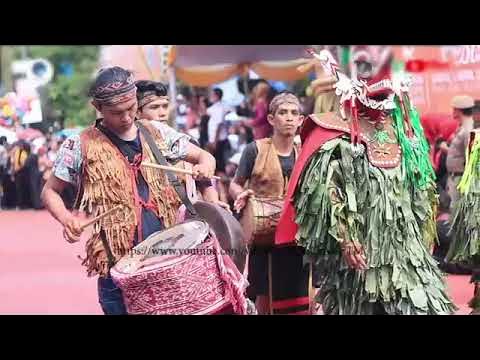Siyasete Devam
Summary
TLDRIn this video, the speaker addresses the political and economic challenges facing their country, reflecting on the struggles of the younger generation and the importance of active civic engagement. They emphasize the need for reform by proposing four key measures: abolishing the positions of governors and district governors, eliminating the Directorate of Religious Affairs, allowing party members to elect their leaders, and adjusting parliamentary salaries to align with teachers' wages. The speaker encourages the youth to take charge of their future and hold political parties accountable, aiming for a prosperous nation through informed participation in the upcoming elections.
Takeaways
- 😀 The speaker emphasizes the importance of being aware of the socioeconomic realities in Turkey, expressing concern over the current state of poverty in the country.
- 😔 Many young people in Turkey have never experienced dining out with their families, highlighting the dire economic conditions faced by many citizens.
- ⚖️ The speaker acknowledges a generational failure to uphold the values of the Republic and the reforms initiated by Atatürk.
- 🚀 There is a call to the younger generation (Gen Z) to take charge in the upcoming elections, as they are more technologically savvy and informed.
- 🍽️ The speaker points out that living standards, such as dining out three times a week and taking vacations, should be achievable in a well-governed country.
- 📝 Four crucial policy changes are proposed: abolishing the governorship and district governorship, eliminating the Directorate of Religious Affairs, changing the election process for party leadership, and revising the salary structure for members of parliament.
- 🗳️ The speaker encourages citizens to demand these changes from political parties, suggesting that the electorate has the power to influence party policies.
- 💡 The speaker argues that the removal of certain governmental positions would empower elected officials and increase accountability.
- 📈 Economic improvements are tied to implementing these proposed changes, with a hopeful outlook that a well-managed country can lead to a better quality of life for its citizens.
- 👥 Lastly, the speaker expresses gratitude for the growing audience and engagement, indicating a desire to further discuss political issues and personal experiences in future content.
Q & A
What is the main topic discussed in the video?
-The video focuses on political issues in Turkey, specifically the current economic situation, the responsibilities of the youth, and suggested reforms for the upcoming elections.
Why does the speaker emphasize the age group of 12 to 25?
-The speaker highlights this age group as a significant demographic that follows him, suggesting that they are the future and their involvement is crucial in shaping the country's political landscape.
What are the four key reforms proposed by the speaker?
-1) Elimination of the governor and district governor positions; 2) Abolishment of the Presidency of Religious Affairs; 3) Party leaders should be elected by registered members rather than appointed; 4) Members of parliament should receive salaries only during their term and not post-office benefits.
How does the speaker relate the current state of Turkey to its historical context?
-The speaker compares the current political structure to the Ottoman Empire, arguing that appointed governors are outdated and do not represent the will of the people, emphasizing the need for a democratic system where officials are elected by citizens.
What issues does the speaker raise regarding the religious institutions in Turkey?
-The speaker criticizes the Diyanet İşleri Başkanlığı (Presidency of Religious Affairs) for allocating state funds exclusively to Sunni Muslims, arguing that it marginalizes other religious groups and should be abolished.
What economic challenges does the speaker mention?
-The speaker notes the high salaries of religious officials compared to teachers and the lack of investment in education and technology, suggesting that this disparity contributes to the overall economic decline.
How does the speaker envision the role of the youth in the upcoming elections?
-The speaker believes that the youth should actively participate in the electoral process by demanding accountability from political parties and ensuring that their voices are heard in shaping policies.
What is the speaker's stance on the relationship between the government and its citizens?
-The speaker advocates for a more accountable government where citizens are not subservient but rather active participants in governance, thus shifting from a culture of obedience to one of citizenship.
How does the speaker propose to address the issue of political apathy among citizens?
-The speaker encourages citizens to stop passively accepting the status quo and to take action by holding politicians accountable and supporting reforms that align with the needs of the people.
What final thoughts does the speaker share regarding their intentions for the future?
-The speaker expresses a desire to continue educating the public about political issues and hopes to inspire the youth to engage in the political process to create a better future for Turkey.
Outlines

このセクションは有料ユーザー限定です。 アクセスするには、アップグレードをお願いします。
今すぐアップグレードMindmap

このセクションは有料ユーザー限定です。 アクセスするには、アップグレードをお願いします。
今すぐアップグレードKeywords

このセクションは有料ユーザー限定です。 アクセスするには、アップグレードをお願いします。
今すぐアップグレードHighlights

このセクションは有料ユーザー限定です。 アクセスするには、アップグレードをお願いします。
今すぐアップグレードTranscripts

このセクションは有料ユーザー限定です。 アクセスするには、アップグレードをお願いします。
今すぐアップグレード関連動画をさらに表示

[FULL] Pidato Ganjar Pranowo saat Konsolidasi Bersama PDI Perjuangan Jawa Barat

Rangkuman 80 Tahun Indonesia Merdeka: Jejak 8 Presiden dan Perjalanan Bangsa

VIDEO RISET 03

Le colpe della nostra generazione

200 ans de la dette de l'indépendance: réactions à la déclaration de Macron

RETROSPEKTIF : MISI MERDEKA (MERDEKA MISSION) (1957)
5.0 / 5 (0 votes)
